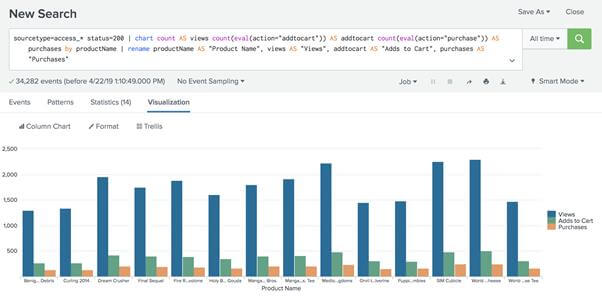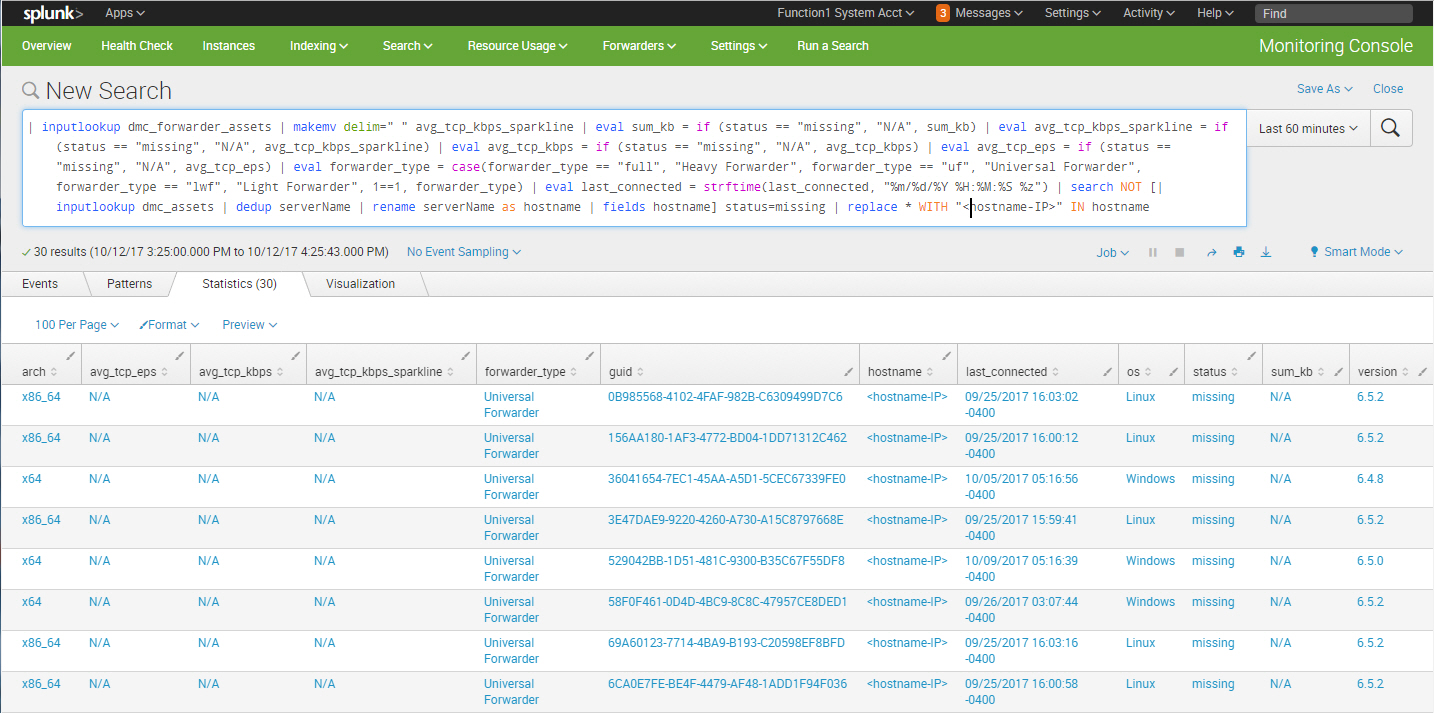

Use this scalar function with the eval or the filter streaming functions.įunction Input timestamp: string format: string time_zone: string Function Output long If timezone is set to null, then UTC is used. This function takes three arguments: a timestamp X, a time format Y, and a timezone Z. Then in your searches, on the Events tab, make. This function parses a date string into a UNIX timestamp. Login to Splunk, go to Your Login Name Here -> Preferences -> Time zone and pick your preferred presentation TZ. | eval formatted_time=strftime(time_zone: "null", time: timestamp, format: "%H:%M:%S", ) strptime(timestamp, format, time_zone) If the timestamp field value is 1586541874588, then the value returned in the formatted_time field is 18:04:34. Returns the hour, minute, and seconds from the timestamp field in timezone UTC. Arguments Function Input time: long format: string time_zone: string Function Output long SPL2 examples The following time variables are not supported: %c, %+, %Ez, %X, %x, %w, %s. Use these common data and time format variables to specify the time-format Y that you want X to be formatted to. Use the first 13 digits of a UNIX time to use the time in milliseconds. This function takes three arguments: a UNIX time X, a time-format Y, and a timezone Z, and returns X using the format specified by Y in timezone Z. This function formats a UNIX timestamp into a human-readable timestamp.

#SPLUNK STRFTIME TIMEZONE HOW TO#
Splunk Administration Getting Data In how to change the. | eval n=relative_time(time_zone: "GMT-0700", time: timestamp, modifier: format, time_zone) Strftime supports other Splunk time functions While the input to the strftime.

When working in the SPL View, you can write the function by using the following syntax. The following example determines the UNIX time value of the start of the hour, based on the value of timestamp, rounded down to the GMT time zone. Use this scalar function with the eval or the filter streaming functions.įunction Input time: long modifier: string time_zone: string Function Output long SPL2 examples For more information on snap-to-time and examples of relative time modifiers, see specify time modifiers in your search. If you do not want to round to a specific time zone, you can set the timezone field to null. For example, if your UNIX time corresponds to Monday 10pm PST and Tuesday 1am EST, then specifying a timezone allows you to select an accurate date that you want to round down to. This function takes three arguments: a UNIX time X, a relative time modifier Y, and a timezone Z, and returns the UNIX time value of Y applied to X rounded according to Z.īecause of the way that timezones are snapped, you must specify a timezone to determine how your time gets rounded down. I suppose I'd advise to keep the time rendered in user's timezone but maybe give for reference some predefined timestamps in other timezones rendered in user's timezone.Date and Time relative_time(time, modifier, time_zone) fromtz), 'c.6N Z'), totstrptime (strftime (t, 'c.6N. Unfortunately, time calculations can be annoying and timezone differences can be confusing. Improving on the answer above, here is a version that DOES account for daylight savings timezones, as well as times with microseconds: makeresults eval tstrptime (' 14:00', 'F H:M'), fromtz'UTC', totz'Australia/Melbourne', fromtstrptime (strftime (t, 'c.6N '. It "works" meaning that it should produce expected string values but is prone to cause much confusion and errors later when everyone forgets how it's done, when the daylight saving kicks and so on. What I meant and what you showed is rendering a completely different value of timestamp to make the string representation appear "correct". It's always the one configured for the user "globally". The strftime converts given timestamp to a string but the timezone is not-configurable.

And OP wants to render it in different timezone than user's configured timezone. It's not about the events themselves _time is _time.Īs I understand the "problem" - there is a timestamp - possibly parsed out from the event - which as we know is internally stored as number of seconds since epoch and is completely "timezoneless".


 0 kommentar(er)
0 kommentar(er)
